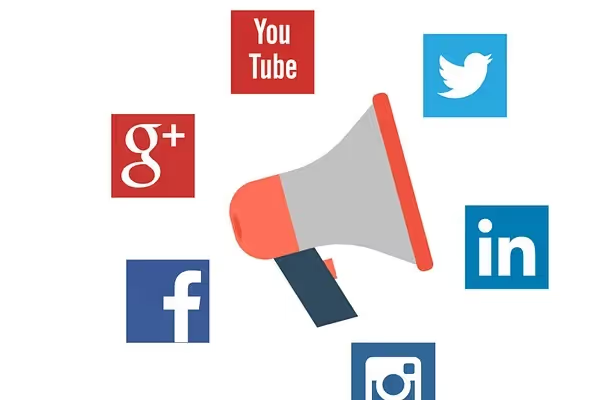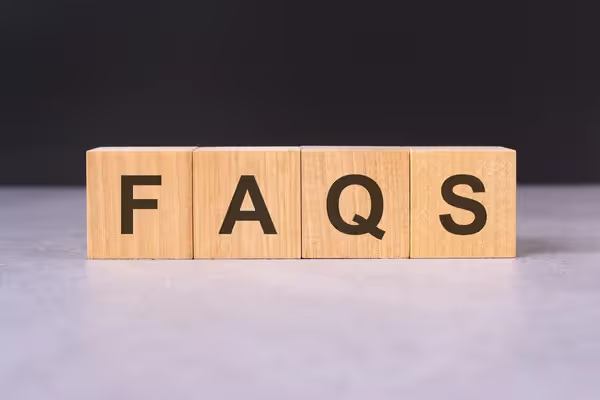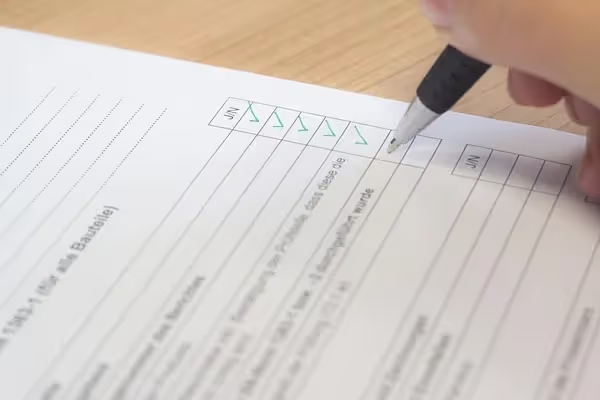Introduction
In today’s hyper-connected world, a company’s digital presence is as crucial as its financials or physical assets. Whether you’re an investor, business partner, employer, or even a consumer, understanding the true story behind a brand or individual now requires more than just traditional research. Enter digital due diligence—a process that goes far beyond spreadsheets to scrutinize every digital footprint, especially on social media. But what exactly does “digital due diligence” mean in the context of social media, and why is it now indispensable for risk management, investment, and reputation protection?
This comprehensive guide will demystify digital due diligence, explain its importance, and show how social media screening, listening, and influencer vetting can uncover both risks and opportunities in the digital landscape.
What is Digital Due Diligence?
Digital due diligence is the structured, in-depth investigation of a company’s or individual’s online presence, assets, and behaviors. This process encompasses everything from websites and digital marketing activities to social media profiles, online reviews, and data privacy practices. The goal is to gain a holistic view of digital strengths, vulnerabilities, and reputation before making critical business decisions such as investments, mergers, acquisitions, or key hires.
Why Digital Due Diligence Matters
- Reputation Management: A single negative viral post or review can impact a brand’s value.
- Risk Mitigation: Identifies red flags such as fraud, fake followers, or damaging content.
- Strategic Insight: Reveals opportunities for digital growth, competitive advantage, and market positioning.
- Compliance: Ensures adherence to data privacy, copyright, and advertising regulations.
Social Media Due Diligence: The New Frontier
What is Social Media Due Diligence?
Social media due diligence is a focused process of assessing the online presence, activities, and sentiment surrounding a company, individual, or entity on platforms like Facebook, X (Twitter), Instagram, LinkedIn, and YouTube. It involves reviewing posts, comments, followers, and engagement to uncover both risks and opportunities.
Key Elements of Social Media Due Diligence
- Profile Authenticity: Verifying that accounts are genuine and not bots or fake profiles.
- Content Analysis: Reviewing posts, comments, and shares for red flags, brand alignment, or compliance issues.
- Sentiment Analysis: Gauging public perception, customer satisfaction, and potential backlash.
- Network Mapping: Identifying influential connections, partnerships, or problematic associations.
Why Social Media Matters in Due Diligence
Social media is where reputations are made or broken. A company’s or individual’s online persona can reveal much about their values, culture, and risk profile. In mergers, acquisitions, hiring, or partnerships, overlooking social media can lead to costly surprises.
The Digital Due Diligence Process
Step 1: Identify All Digital Assets
Begin by cataloging all digital assets, including:
- Websites and blogs
- Social media profiles
- Apps and digital products
- Online communities and forums
Step 2: Gather Publicly Available Data
Collect data from:
- Social media platforms (posts, comments, engagement)
- Online reviews (Google, Amazon, Yelp, G2)
- News articles and press releases
- Employee and customer feedback
Step 3: Analyze Social Media Presence
Use social media screening tools to:
- Scan for inappropriate or risky content
- Verify account ownership and authenticity
- Assess follower quality and engagement rates
Step 4: Sentiment and Brand Health Analysis
Deploy social media listening to:
- Monitor brand mentions and conversations
- Identify sentiment trends (positive, negative, neutral)
- Track emerging issues or viral content
Step 5: Review Influencer and Employee Activity
Use influencer vetting to:
- Evaluate brand ambassadors or key employees’ online behavior
- Identify potential conflicts of interest or reputational risks
Step 6: Assess Compliance and Privacy
Check for:
- Adherence to data privacy laws (GDPR, CCPA)
- Proper disclosure of sponsored content
- Secure handling of customer data
Step 7: Report and Action Plan
Summarize findings, highlight risks and opportunities, and recommend next steps for remediation or growth.
What Can Digital Due Diligence Uncover?
Reputation Risks
- Negative customer or employee reviews
- Viral complaints or scandals
- Fake followers, bots, or manipulated engagement
Compliance Gaps
- Undisclosed partnerships or sponsored content
- Data privacy violations
- Copyright infringement
Growth Opportunities
- Untapped digital channels
- Loyal online communities
- Influencer partnerships
Competitive Insights
- Benchmarking against industry leaders
- Identifying market trends and gaps
Media What? The Expanding Scope of Digital Due Diligence
The phrase “media what” often arises when stakeholders realize how broad the digital landscape has become. Digital due diligence now covers not just traditional media, but also:
- Social media platforms
- Messaging apps
- Review sites
- Employee forums
- Video and livestream platforms
This expansion means that due diligence must be ongoing, not just a one-time event.
Social Media Background Checks: The Human Factor
Social media background check tools use AI and expert analysis to scan vast quantities of public online data. This can help identify potential business or personnel risks, verify claims, and uncover red flags that traditional checks might miss. However, context is key, false positives can occur, and human review is essential for balanced decision-making.
Digital Due Diligence in Mergers, Acquisitions, and Investments
In M&A, digital due diligence is now as important as financial or legal checks. Investors and acquirers use it to:
- Assess the target’s digital reputation and customer sentiment
- Uncover hidden risks (e.g., negative press, fake followers)
- Validate digital assets and intellectual property
- Ensure alignment between IT and business strategy
Digital Due Diligence for Hiring and Partnerships
Employers and partners use digital due diligence to:
- Screen candidates or collaborators for risky online behavior
- Verify professional claims and reputations
- Protect brand integrity and avoid association with controversial figures
Tools for Effective Digital Due Diligence
- Social media screening: Automated scans for red flags and reputation risks.
- Social media listening: Real-time monitoring of brand mentions and sentiment.
- Influencer vetting: Evaluates potential partners’ digital reputation and alignment.
- Social media background check: Deep dives into public online data for a comprehensive risk assessment.
Best Practices for Digital Due Diligence
- Start Early: Begin due diligence as soon as a potential investment, hire, or partnership is identified.
- Use Multiple Tools: Combine automated and manual analysis for the most accurate results.
- Context Matters: Don’t rely solely on negative signals and understand the context behind posts or reviews.
- Stay Compliant: Always follow data privacy laws and ethical guidelines.
- Continuous Monitoring: Digital due diligence should be ongoing, not a one-time event.
Frequently Asked Questions:
1. What is digital due diligence?
Digital due diligence is the process of investigating and analyzing a company’s or individual’s online presence, assets, and reputation to identify risks and opportunities before making business decisions.
2. Why is social media important in digital due diligence?
Social media offers real-time insights into reputation, sentiment, and potential risks that traditional checks might miss. It’s a key part of understanding the true story behind a brand or individual.
3. How does social media screening work?
Social media screening uses automated tools and expert analysis to scan profiles, posts, and interactions for red flags, compliance issues, or reputation risks.
4. What can digital due diligence uncover?
It can reveal negative reviews, fake followers, compliance gaps, viral scandals, and growth opportunities, providing a holistic view of digital health.
5. How is influencer vetting part of digital due diligence?
Influencer vetting evaluates the online reputation and behavior of brand ambassadors or partners to ensure alignment and protect brand integrity.
6. Is digital due diligence only for big companies?
No, businesses of all sizes and even individuals can benefit from digital due diligence to safeguard their reputation and make informed decisions.
7. What are the best tools for digital due diligence?
Key tools include social media screening, social media listening, influencer vetting, and social media background check.
8. How often should digital due diligence be performed?
It should be conducted during major business decisions (like hiring, investments, or partnerships) and as part of ongoing risk management.
Conclusion
Digital due diligence on social media is no longer optional—it’s a critical layer of protection and insight in today’s digital-first world. By combining structured investigation, advanced tools, and expert analysis, organizations and individuals can uncover hidden risks, seize new opportunities, and make smarter, safer decisions. Whether you’re investing, hiring, or protecting your brand, digital due diligence is your best defense in the ever-evolving online landscape.













.avif)